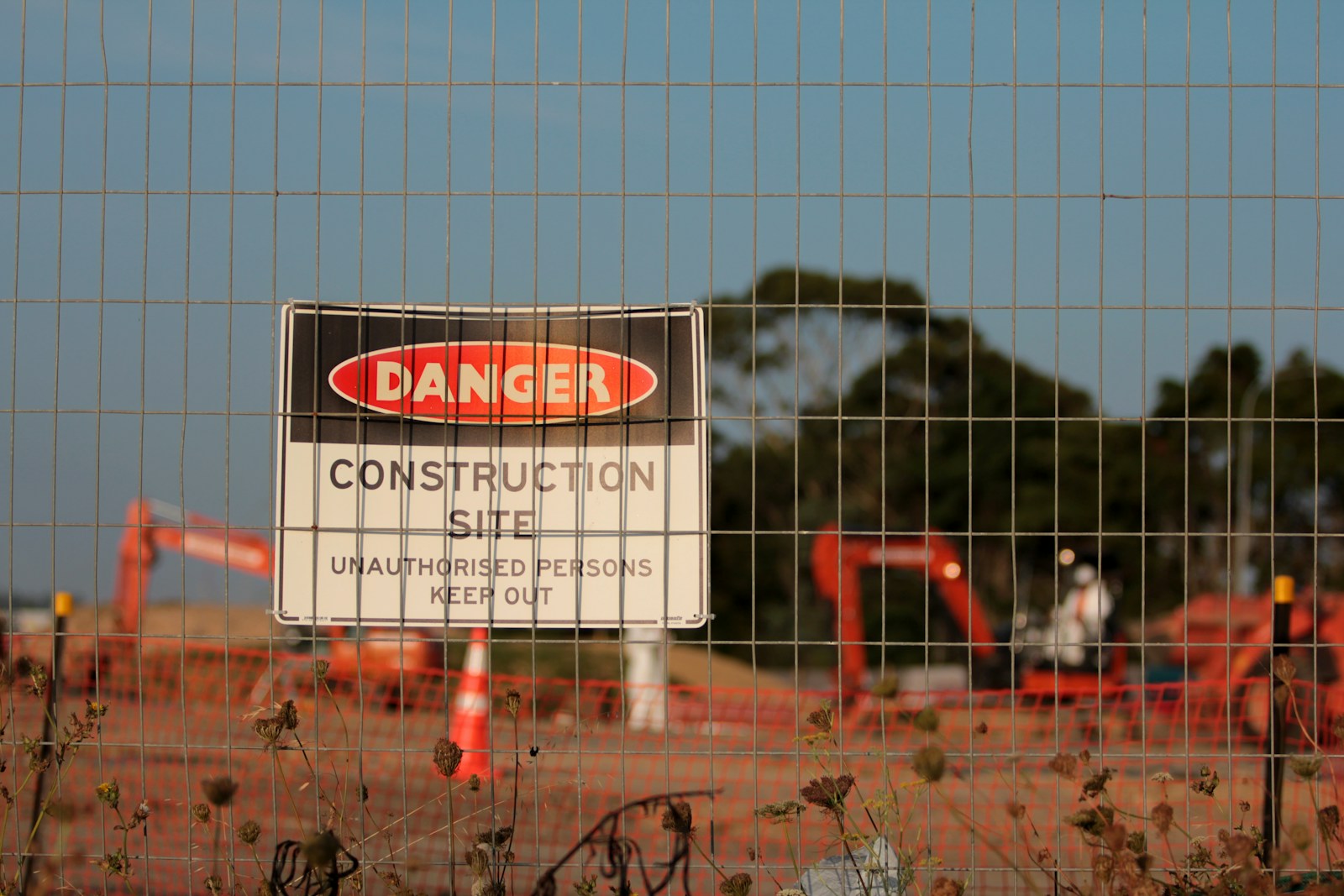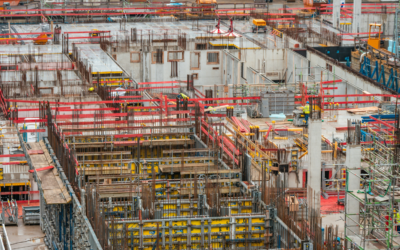Understanding the Importance of the Construction Inspector
Building safe, functional, and high-quality structures is a team effort, but one role stands out for ensuring the integrity of the final product—the construction inspector. Construction and building inspectors are indispensable in reducing risks, ensuring compliance with stringent building codes, and maintaining the safety of occupants and workers alike through effective construction management, which involves overseeing and coordinating the various phases of construction projects.
Beyond protecting lives and assets, their meticulous work prevents costly delays, reduces the chances of litigation, and ensures overall compliance with local and national regulations. Whether you’re embarking on a residential project or a large-scale commercial build, a skilled construction inspector can mean the difference between a smooth project and costly oversights.
The Role of Construction Inspectors in Building Safety
Construction and building inspectors are keen-eyed professionals responsible for ensuring that construction projects meet the necessary codes, regulations, and standards. Some of their core responsibilities include:
1. On-Site Inspections
Inspectors regularly visit construction sites during various phases to ensure work complies with the construction specifications and current building codes. They check everything, from framing to foundational work, keeping a close watch for deviations that could compromise safety.
2. Inspecting the Complex Systems Behind Structures
Building inspectors typically inspect electrical, structural, plumbing, and HVAC systems to verify their safety and functionality. Whether they’re testing electrical components for proper installation or ensuring plumbing systems are free from leaks, these inspections are critical to ensuring systems operate as intended.
3. Identifying Hazards and Flaws
Inspectors document defects, unsafe practices, and hazards that could lead to potential structural failures or personal injuries. For instance, they might flag improperly installed electrical wiring during the early construction phase, preventing future risks.
4. Collaborative Problem-Solving
Construction inspectors play a collaborative role, working closely with architects, engineers, and contractors to resolve issues. They provide actionable written or oral feedback to ensure projects progress smoothly while adhering to building regulations and codes.
Building Inspection Technology Revolutionizing the Field
Modern construction inspectors often rely on advanced tools and technology to enhance their work efficiency and accuracy.
1. Drones and Thermal Imaging
The use of drones allows for quick inspections of hard-to-reach areas like rooftops and steel fabrication. Thermal imaging, on the other hand, helps detect issues such as faulty air conditioning or plumbing leaks that are invisible to the naked eye.
2. Advanced Inspection Equipment
Inspectors employ specialized equipment such as electrical testers or code-use survey equipment to measure and test building components. This ensures that even complex systems meet safety compliance standards.
3. Digital Report Generation
Building inspection software has significantly streamlined inspections. Now, inspectors can document findings, generate progress reports, and share follow-up inspections in real-time, improving efficiency and client communication.
The Construction Inspector’s Scope of Work
The work of construction and building inspectors isn’t limited to one area. Their expertise spans multiple types of projects and specialties.
- Project Types: Inspectors typically check residential, commercial, and industrial sites, including roads, bridges, and sewer and water systems.
- Specializations: Mechanical inspectors may focus on HVAC systems, electrical inspectors handle intricate electrical components, and plumbing inspectors verify plumbing systems operate effectively.
- Extensive Coverage: From zoning regulations to national building codes, inspectors ensure structures and their systems meet local and international benchmarks.
Benefits of Effective Construction Inspection
Hiring a skilled construction inspector provides undeniable benefits to property developers and contractors alike. These include but are not limited to:
- Enhanced Building Safety: Their vigilance identifies hidden defects and ensures structural integrity. This protects lives, particularly during disasters like earthquakes or storms.
- Reduced Costs and Litigation Risks: Catching defects during initial inspections minimizes expensive repairs and the risk of legal disputes later.
- Compliance with Building Codes: Inspectors review building plans and projects at every step, ensuring codes, zoning regulations, and safety compliance are met in full.
- Sustainability: Many inspectors emphasize sustainable practices, helping reduce waste and ensuring energy-efficient systems are in place.
Skills and Qualifications Required for Construction Inspectors
Becoming a successful inspector involves more than just technical expertise. Here are the skills and certifications that make great inspectors stand out:
- Technical Expertise: A strong working knowledge of building materials, national building codes, zoning regulations, and mechanical knowledge is essential.
- Communication Skills: Both written and oral feedback must be delivered effectively to coordinate with engineers, contractors, and other stakeholders.
- Physical Stamina: Inspectors often work at inspection sites with tight spaces, ladders, or challenging weather conditions.
- Certifications and Licensing: While individual licensing programs and certification requirements vary by location, many community colleges offer associate’s degree programs to aid those entering the field. Continuing education courses also ensure inspectors stay up to date.
- Recordkeeping and Reporting Duties: Inspectors must be trained in various inspection techniques, codes, and regulations, and be able to properly document their findings through written or oral reports during inspections.
Addressing Common Challenges Faced by Inspectors
While construction inspection plays a pivotal role, inspectors encounter several challenges, including:
- Keeping Up with Evolving Codes: Frequent amendments to localities’ building codes require inspectors to stay updated with continuing education.
- Time Constraints: Tight deadlines can make balancing thoroughness and efficiency difficult.
- Adverse Conditions: Weather, unsafe sites, and physical challenges like inspecting other tight spaces add to the complexity.
- Conflicts with Developers: Inspectors must remain impartial, even if disputes arise over the defects or risks identified.
- Technological Adaptation: Learning how to utilize emerging construction technology and testing devices requires dedication and adaptability.
The Future of Construction Inspection
Construction inspection isn’t just evolving—it’s fast becoming one of the most crucial roles in modern development. Here’s what lies ahead in this field:
- Integration of AI and ML: Artificial intelligence will soon redefine building inspection technology, enhancing hazard detection and compliance analysis.
- Focus on Sustainability: Inspectors will increasingly ensure sustainable materials and energy-efficient systems are part of construction projects.
- Rising Demand: Population growth and rapid urbanization will create a surge in demand for inspectors across industries.
- Entrepreneurial Opportunities: Many experienced inspectors are choosing to start their own inspection business, combining their technical skills with business management expertise.

Why Choose South Coast Improvement Company for Your Projects
When it comes to navigating every phase of the construction process with confidence, South Coast Improvement Company is your trusted partner. Our design-build services eliminate conflicts between architects and contractors, providing you with a single-source accountability for your project. From project vision to completion, we manage inspections, potential risks, and all compliance measures to ensure success.
Take the Next Step
Are you ready to ensure your construction projects meet the highest standards of safety and quality? Contact South Coast Improvement Company today! Schedule a consultation to discuss your project needs or expl
Learn More and Resources
If you’re looking to deepen your understanding of construction safety and quality management, check out these helpful resources:
- OSHA – Construction Industry Standards – Learn about the Occupational Safety and Health Administration’s regulations to ensure construction site safety and compliance.
- American Society of Civil Engineers (ASCE) – Access a wealth of resources, research, and guidelines related to civil and structural engineering practices.
- Construction Management Association of America (CMAA) – This site provides tools, best practices, and educational materials for advancing construction management efficiency and safety.
- Building Codes and Standards by ICC – The International Code Council offers comprehensive information about building codes and standards used globally.
- National Institute of Building Sciences (NIBS) – Explore cutting-edge research and solutions for improving industry standards and project outcomes.
- American Concrete Institute (ACI) – ACI provides extensive knowledge on concrete design, construction, and maintenance through publications, certifications, and technical resources.
- Engineering News-Record (ENR) – Stay updated with the latest news, analysis, and trends in the construction and engineering industries across the globe.
- Green Building Council (USGBC) – Dedicated to promoting green building strategies, USGBC provides certifications, resources, and tools to support sustainable construction practices.
Stay informed by leveraging these credible resources as you plan and execute your construction projects. These platforms provide valuable insights to help you prioritize safety, compliance, and excellence in every stage of development.
View Our Work
Aspen Dental
Partnering with The Aspen Group on the construction of a new Aspen Dental facility that’s functional & welcoming for patients & staff alike. South Coast Improvement Company was awarded the construction of a new Aspen Dental facility in Killingly, CT. The...
Springhouse Senior Living – HumanGood
Designed to enhance comfort & functionality. South Coast Improvement company was hired by HumanGood for an interior and exterior renovation at Springhouse Senior Living. Our skilled teamtransformed the 2nd through 5th floor common areas into brighter, more...






